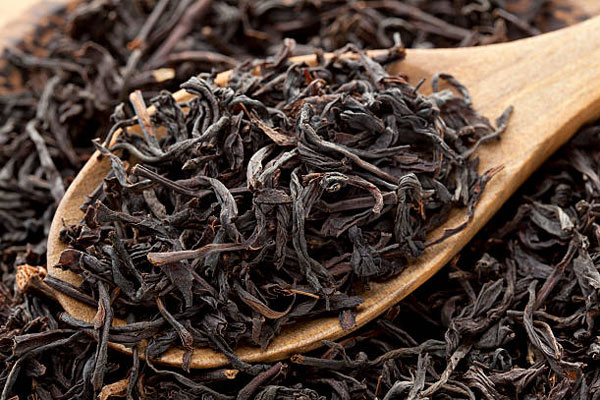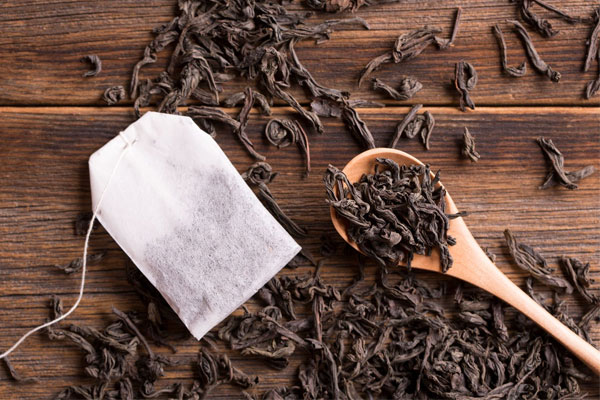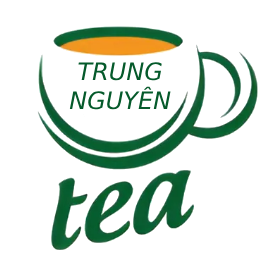Blogs
What is loose leaf tea
Tea has been enjoyed for centuries as a comforting and health-boosting beverage, but not all tea is created equal. While many people are familiar with tea bags, loose leaf tea offers a richer, fresher, and more authentic tea experience.
Unlike pre-packaged tea bags, which often contain finely ground tea dust, loose leaf tea consists of whole or large pieces of tea leaves that retain their natural flavor, aroma, and beneficial compounds. This results in a full-bodied, smooth, and more complex cup of tea. So, what exactly is loose leaf tea, and why do so many tea enthusiasts prefer it over bagged tea? Let’s explore in the article below!
What is loose leaf tea?
Loose leaf tea is a premium form of tea that consists of whole or large pieces of tea leaves that are sold loose rather than being pre-packaged in tea bags. Unlike commercial tea bags, which often contain tea dust or fannings—tiny broken pieces of tea leaves—loose leaf tea maintains its integrity, freshness, and natural properties. This means that it retains more of its essential oils, antioxidants, and complex flavors, resulting in a richer, more aromatic, and fuller-bodied tea-drinking experience.
Because the leaves are not confined to the small space of a tea bag, they have more room to expand and fully infuse, extracting a more nuanced and well-balanced flavor. The brewing process allows for a gradual release of beneficial compounds, such as polyphenols, catechins, and amino acids, which contribute to the tea’s health benefits as well as its deep, layered taste.
Loose leaf tea comes in a variety of types, including green, black, oolong, white, and herbal teas, each offering distinct flavors and health advantages. This type of tea is often favored by tea enthusiasts and connoisseurs because it provides greater control over steeping time, water temperature, and portion size, allowing for a personalized and high-quality tea experience.
Additionally, since loose leaf tea does not rely on disposable bags, it is a more environmentally friendly option, reducing unnecessary packaging waste. Overall, loose leaf tea is valued for its superior taste, enhanced health benefits, and eco-conscious nature. Whether enjoyed for its refreshing flavors, soothing qualities, or potential wellness effects, loose leaf tea offers an authentic and enjoyable way to experience the true essence of tea.

Types of loose leaf tea
Loose leaf tea comes in a wide range of flavors, aromas, and health benefits, depending on how the leaves are processed and where they are grown. Unlike pre-packaged tea bags, loose leaf tea allows for better flavor extraction, making it a preferred choice among tea enthusiasts. Below are some of the most popular types of loose leaf tea and their unique characteristics.
Green tea
Green tea is made from unoxidized tea leaves, which helps retain its natural antioxidants, fresh flavor, and vibrant green color. Because the leaves are processed quickly after harvesting—either through steaming or pan-firing—green tea maintains a light, grassy, and sometimes slightly sweet flavor profile.
Health benefits:
- Rich in antioxidants: Green tea is high in catechins, which help fight free radicals and reduce inflammation.
- Boosts metabolism: Studies suggest that green tea can help with weight management by increasing fat oxidation.
- Supports brain function: The combination of caffeine and L-theanine in green tea enhances focus and mental clarity without the jittery effects of coffee.
- Promotes heart health: Drinking green tea regularly has been linked to lower cholesterol levels and improved cardiovascular health.
Black tea
Black tea undergoes full oxidation, which gives it a bold, robust, and sometimes malty flavor with dark, coppery hues. Due to its stronger taste, black tea is often enjoyed with milk, honey, or lemon. It also contains a higher caffeine content compared to other types of tea, making it an ideal choice for those looking for an energizing morning beverage.
Health benefits:
- Improves heart health: Black tea contains flavonoids that help reduce the risk of heart disease and stroke.
- Enhances digestion: The tannins in black tea aid digestion and help soothe an upset stomach.
- Boosts energy and alertness: With a moderate caffeine content, black tea can improve focus and reduce fatigue.
- Supports immune function: Antioxidants in black tea help strengthen the body’s natural defenses
Oolong tea
Oolong tea falls between green and black tea in terms of oxidation, offering a diverse range of flavors, from floral and fruity to rich and toasty. The oxidation level can vary from light (closer to green tea) to heavily oxidized (closer to black tea), giving each oolong variety a distinct character.
Health benefits:
- Aids weight management: Oolong tea can help regulate metabolism and assist in fat burning.
- Supports digestion: It promotes gut health by balancing beneficial bacteria in the digestive system.
- Improves skin health: The antioxidants in oolong tea may help reduce acne and promote clear skin.
- Enhances mental alertness: With a balanced caffeine level, oolong tea provides a gentle energy boost without overstimulation.
Rosemary tea
Rosemary tea is an herbal infusion made from the dried leaves of the rosemary plant. Unlike traditional teas, which come from the Camellia sinensis plant, rosemary tea is naturally caffeine-free, making it a great option for evening relaxation. It has a distinct earthy, pine-like aroma with a slightly minty and savory flavor.
Health benefits:
- Supports brain health: Rosemary tea is believed to enhance memory, concentration, and overall cognitive function.
- Reduces stress and anxiety: The calming properties of rosemary can help alleviate mental fatigue and improve mood.
- Aids digestion: Drinking rosemary tea after a meal may help ease bloating, indigestion, and stomach discomfort.
- Boosts circulation: Rosemary has natural anti-inflammatory effects that promote better blood flow and heart health.
Herbal tea
Herbal tea refers to any caffeine-free infusion made from dried flowers, fruits, herbs, or spices rather than traditional tea leaves. Because herbal teas come from a variety of plants, they offer an extensive range of flavors, aromas, and health benefits.
Popular types of herbal tea & their benefits:
- Chamomile tea: Known for its calming effects, chamomile tea helps with relaxation, reducing anxiety, and improving sleep quality.
- Peppermint tea: Refreshing and cooling, peppermint tea soothes digestion, relieves headaches, and clears congestion.
- Hibiscus tea: With its tart and fruity taste, hibiscus tea is packed with vitamin C and helps regulate blood pressure.
- Ginger tea: Spicy and warming, ginger tea is excellent for digestion, nausea relief, and immune system support.
- Rooibos tea: A naturally sweet and nutty tea from South Africa, rooibos is rich in antioxidants and promotes skin health.

How is loose leaf tea different from bagged tea?
The primary difference between loose leaf tea and bagged tea lies in the quality, size, and infusion process of the tea leaves. While both forms serve the same fundamental purpose—brewing a cup of tea—the experience, flavor, and benefits they offer can be quite distinct.
Tea leaf quality and composition
- Loose leaf tea consists of whole tea leaves or large leaf fragments, preserving the natural structure, essential oils, and antioxidants of the tea. This results in a richer, fresher, and more complex flavor profile.
- Bagged tea, on the other hand, typically contains tea dust and fannings—small, broken tea particles that are left over after processing whole tea leaves. Because these tiny particles have a larger surface area, they oxidize faster and lose their freshness, aroma, and essential nutrients more quickly.
Flavor and aroma
- Loose leaf tea leaves have room to expand and unfurl fully when steeped, which allows them to release their full spectrum of flavors and natural oils. This results in a smooth, well-balanced, and robust taste, with a depth of flavor that changes and develops as the tea steeps.
- In contrast, tea bags contain small tea particles that release their flavors much more quickly but lack the depth and complexity of loose leaf tea. This often results in a one-dimensional, flat, or even slightly bitter taste, especially when over-steeped.
Steeping and infusion process
- Because loose leaf tea consists of larger leaves, it needs more space to expand and infuse properly. This is why it is typically brewed using a teapot, tea infuser, or French press, which allows for better water circulation and extraction of flavors.
- Bagged tea is convenient and easy to use, but since the leaves are crushed into tiny particles, they do not require much room to infuse. However, the trade-off is that the tea releases its flavor too quickly, leading to a harsher, more astringent taste if steeped for too long.
Health benefits and nutrient retention
- Loose leaf tea retains higher amounts of antioxidants, polyphenols, catechins, and essential oils, all of which contribute to various health benefits such as improved digestion, reduced inflammation, and enhanced mental focus.
- In contrast, bagged tea loses many of these beneficial compounds during processing and oxidation, making it less potent in terms of health benefits compared to loose leaf tea.
Environmental impact
- Loose leaf tea is generally a more sustainable and eco-friendly option because it does not require single-use tea bags or additional packaging. Many tea bags also contain microplastics or synthetic materials, which can be harmful to both health and the environment.
- Bagged tea, while convenient, often contributes to more waste, especially if the tea bags are not biodegradable or compostable.
Customization and brewing control
- With loose leaf tea, you have more control over the brewing process, including the tea-to-water ratio, steeping time, and temperature. This allows for a customized tea experience based on personal preferences.
- Bagged tea, while more convenient, offers less flexibility since the amount of tea per bag is pre-measured, and the leaves are too fine to control steeping time without affecting the taste.
If you’re looking for a high-quality tea experience, loose leaf tea is the way to go. With its rich flavors, fresh aroma, and numerous health benefits, it offers a far superior alternative to traditional tea bags. Whether you prefer a strong black tea in the morning or a soothing herbal blend at night, loose leaf tea allows you to fully enjoy the true essence of tea.
